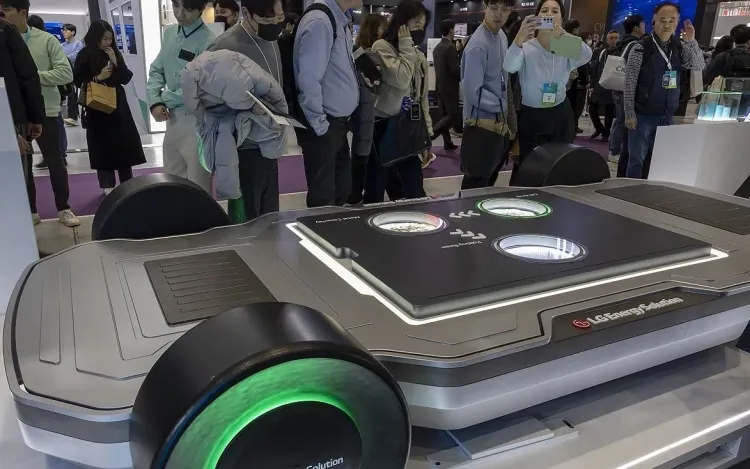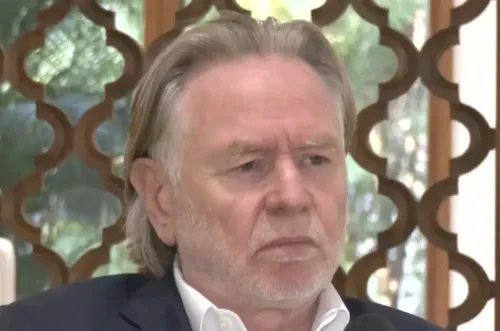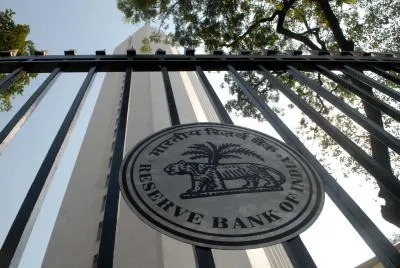Why Are Major Battery Makers in South Korea Facing Declining Plant Operations?

Synopsis
Key Takeaways
- Declining plant utilization rates among major South Korean battery manufacturers.
- LG Energy Solution's production capacity at 20.1 trillion won.
- Samsung SDI's R&D investment increased to 11.1 percent of its sales.
- Ongoing challenges in the electric vehicle market.
- Companies are focusing on innovation and research for future growth.
Seoul, Aug 15 (NationPress) Leading battery manufacturers have reported a persistent decline in their factory operation rates during the initial half of the year, attributed to the decreasing global demand for electric vehicles (EVs), according to data released on Friday.
In its semiannual analysis, industry frontrunner LG Energy Solution Ltd. (LGES) revealed that its production capacity reached 20.1 trillion won (US$14.5 billion) in the first six months of this year, with an average plant capacity utilization rate of 51.3 percent.
This figure has progressively decreased from 73.6 percent in 2022 to 69.3 percent in 2023 and 57.8 percent last year, as reported by the Yonhap news agency.
Samsung SDI Co.'s operational rate for small batteries dropped to 44 percent in the January-June timeframe, down from 58 percent last year, according to the company's semiannual report. While the report does not specify the rates for medium and large batteries, it's presumed they too have declined.
Conversely, SK On Co.'s operational rate saw a recovery, rising to 52.2 percent in the first half from 43.6 percent last year, following a significant fall from 87.7 percent in 2023.
The underperformance of Korean battery manufacturers can be linked to the ongoing EV downturn, which is anticipated to persist throughout this year.
Earlier this year, LGES Chief Executive Officer (CEO) Kim Dong-myung remarked that the global demand for batteries is likely to reach its lowest point in the first half before the market potentially rebounds as early as 2026.
Despite these challenging conditions, Korean companies are actively seeking new avenues for growth by increasing investments in research and development (R&D).
In the first half, LGES allocated 620.4 billion won for R&D, representing 5.2 percent of its combined revenue during this timeframe. The company had spent 4.2 percent of its sales on R&D last year and 3.1 percent in 2023.
Samsung SDI invested 704.4 billion won, which is 11.1 percent of its sales, in R&D during the same period, an increase from 7.8 percent in 2024.
In contrast, SK On spent only 0.52 percent of its sales, equating to 148 billion won, on R&D in the January-June timeframe.









